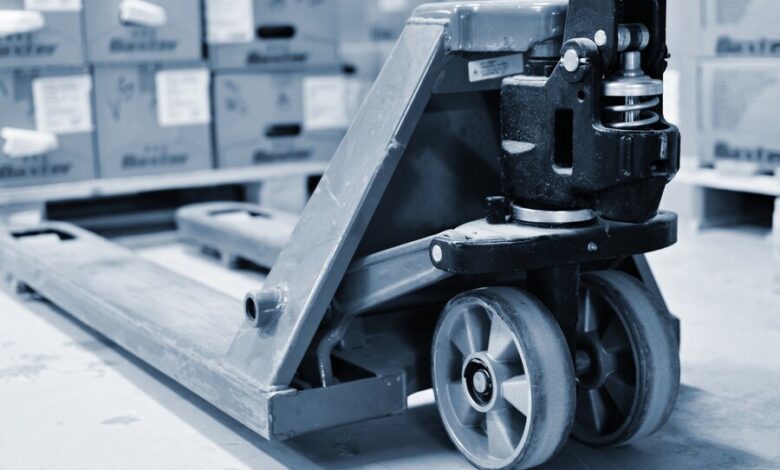Gasketed Precision: Maintaining Forklift Integrity with the Right Wheel Seals

In the bustling world of material handling and warehouse operations, forklifts stand as indispensable workhorses, tackling heavy loads and ensuring the smooth flow of goods. Amidst the various components that contribute to a forklift’s performance, one often overlooked yet crucial element is the wheel seal or gasket.
These unassuming components play a pivotal role in preserving forklift integrity, ensuring longevity, and minimizing downtime. In this comprehensive exploration, we delve into the world of forklift wheel gaskets, highlighting their significance, functions, and the impact they have on overall operational efficiency.
Understanding Forklift Wheel Gaskets
Forklift wheel gaskets, also known as wheel seals, serve as protective barriers, preventing contaminants such as dust, dirt, and moisture from infiltrating the wheel bearings. These forklift wheel gaskets play a vital role in maintaining the integrity of the forklift’s wheel assembly, safeguarding against wear and tear that could compromise performance.
The Importance of Forklift Wheel Gaskets
Contamination Prevention:
Forklifts operate in a variety of environments, from dusty warehouses to outdoor storage yards. Without effective wheel seals, these contaminants can infiltrate the wheel bearings, leading to accelerated wear and potential damage. Gaskets act as a first line of defense, keeping harmful elements at bay and preserving the longevity of critical components.
Enhanced Lubrication Retention:
Proper lubrication is essential for the smooth operation of forklift wheel bearings. Wheel gaskets play a crucial role in retaining the lubricant within the bearing assembly, preventing leakage and ensuring that the moving parts are adequately lubricated. This not only contributes to smooth operation but also minimizes friction, reducing the risk of overheating and premature wear.
Temperature Regulation:
Forklifts often operate in demanding conditions, and the wheel bearings can generate significant heat during operation. High-quality wheel seals assist in temperature regulation by preventing excessive heat buildup. This is particularly important in preventing thermal damage to the bearings and maintaining optimal performance under varying work conditions.
Selecting the Right Forklift Wheel Gasket:
Choosing the appropriate wheel seal for a forklift is a critical decision that directly influences the efficiency and longevity of the equipment. Several factors should be considered during the selection process:
Material Quality:
- High-quality materials, such as rubber compounds or synthetic polymers, ensure durability and resistance to environmental factors. The chosen material should withstand exposure to contaminants, chemicals, and varying temperatures without compromising its sealing capabilities.
Design and Construction:
- The design of a wheel gasket is as important as the materials used. A well-constructed seal should have a secure fit, effectively preventing the intrusion of contaminants. The design should also accommodate the specific requirements of the forklift model and its intended applications.
Ease of Installation:
- Time is of the essence in any industrial setting. Opting for wheel seals that are easy to install not only saves valuable time but also ensures that the seals are fitted correctly, minimizing the risk of errors that could lead to operational issues down the line.
Compatibility:
- Forklifts come in various makes and models, each with unique specifications. It’s crucial to choose wheel seals that are compatible with the specific forklift in question. This ensures a seamless fit and optimal performance.
Routine Maintenance and Inspection
The effectiveness of forklift wheel gaskets is contingent upon regular maintenance and inspection. Implementing a proactive maintenance schedule helps identify potential issues before they escalate, preventing costly repairs and downtime. Here are key maintenance practices:
Regular Cleaning:
- Remove accumulated dirt and debris from the wheel and gasket area regularly. This simple step can prevent contaminants from compromising the integrity of the wheel seal.
Visual Inspections:
- Conduct visual inspections of the wheel seals during routine maintenance checks. Look for signs of wear, damage, or leakage. Identifying issues early allows for timely replacements, preventing more extensive damage.
Lubrication Checks:
- Ensure that the wheel bearings are adequately lubricated. Over time, lubrication may degrade, and seals may wear out. Regularly check and replenish lubricants as needed, and replace worn-out seals promptly.
Temperature Monitoring:
- Keep an eye on the operating temperatures of the wheel bearings. Unusual spikes in temperature can indicate issues with the wheel seals or inadequate lubrication. Address any temperature irregularities promptly to prevent damage.
The Impact on Operational Efficiency
Investing in high-quality forklift wheel gaskets is an investment in operational efficiency. Here’s how the right wheel seals positively impact overall forklift performance:
Reduced Downtime:
- Properly functioning wheel seals minimize the risk of bearing damage and other related issues. This translates to reduced downtime, ensuring that forklifts are operational when needed and contributing to a more efficient workflow.
Extended Equipment Lifespan:
- By safeguarding wheel bearings from contaminants and promoting proper lubrication, wheel gaskets contribute to the extended lifespan of critical components. This, in turn, reduces the frequency of replacements and associated costs.
Enhanced Safety:
- Forklift safety is paramount in industrial settings. The reliable operation of forklifts, supported by effective wheel seals, enhances overall safety by minimizing the risk of unexpected malfunctions or failures during operation.
Optimized Performance:
- Well-maintained wheel seals contribute to the optimal performance of forklifts. Smooth wheel operation, reduced friction, and regulated temperatures ensure that the equipment operates at peak efficiency, even in challenging environments.
Conclusion
In the dynamic landscape of material handling and warehouse management, the significance of forklift wheel gaskets cannot be overstated. These unassuming components play a crucial role in preserving forklift integrity, ensuring smooth operations, and minimizing the risk of unexpected breakdowns. As custodians of forklift longevity and efficiency, wheel seals serve as silent sentinels, protecting against the infiltrating forces of contamination and wear.
By understanding their importance, selecting the right seals, and implementing regular maintenance practices, businesses can harness the full potential of their forklift fleets, ensuring that gasketed precision becomes synonymous with operational excellence.



